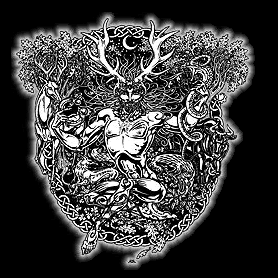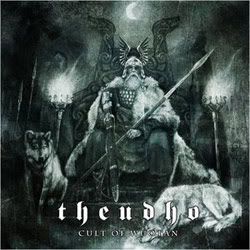Therefore--as Odin and the horned god were clearly of a different origin--a new regional horned god, with Odinist-like qualities, seems to have emerged. This spiritual-cultural dynamic may have occurred with other gods, goddesses, myths, ceremonies, and observances as well. This process probably took place over a very long period of time. Ultimately, as least within the Gaulish territories, the Alpine spiritual tradition seemed to be the dominant one. It's important to note that the Germanic peoples who arrived in Europe at a later time, maintained their own pantheon of gods, goddesses, and mythology. It probably should also be noted that fringe/alternate magical traditions continued to exist among Germanic peoples.
 So there it is. I would like to see more research conducted in this area. Not just the clash of native spirituality, but also in other areas of culture and custom. This was always such a mystery; where did the magical traditions (i.e. European witchcraft) fit into this maze of Odinic, Cernic, Druidic, and other branches of native-regional heathenry. Only by uncovering the veil of overlapping sub-races in ancient times can we really see how this remarkable diversity of spiritual traditions came to be. I believe that the early progenitors of "Wicca" took advantage of this historically ambiguous environment and created an incongruent, universalist, socio-political dynamic. Zsuzsanna Budapest is a traitor to her people. The innumerable women, who served as spiritual leaders within their communities throughout the ages, would have viewed her as an internal enemy.
So there it is. I would like to see more research conducted in this area. Not just the clash of native spirituality, but also in other areas of culture and custom. This was always such a mystery; where did the magical traditions (i.e. European witchcraft) fit into this maze of Odinic, Cernic, Druidic, and other branches of native-regional heathenry. Only by uncovering the veil of overlapping sub-races in ancient times can we really see how this remarkable diversity of spiritual traditions came to be. I believe that the early progenitors of "Wicca" took advantage of this historically ambiguous environment and created an incongruent, universalist, socio-political dynamic. Zsuzsanna Budapest is a traitor to her people. The innumerable women, who served as spiritual leaders within their communities throughout the ages, would have viewed her as an internal enemy..


No comments:
Post a Comment